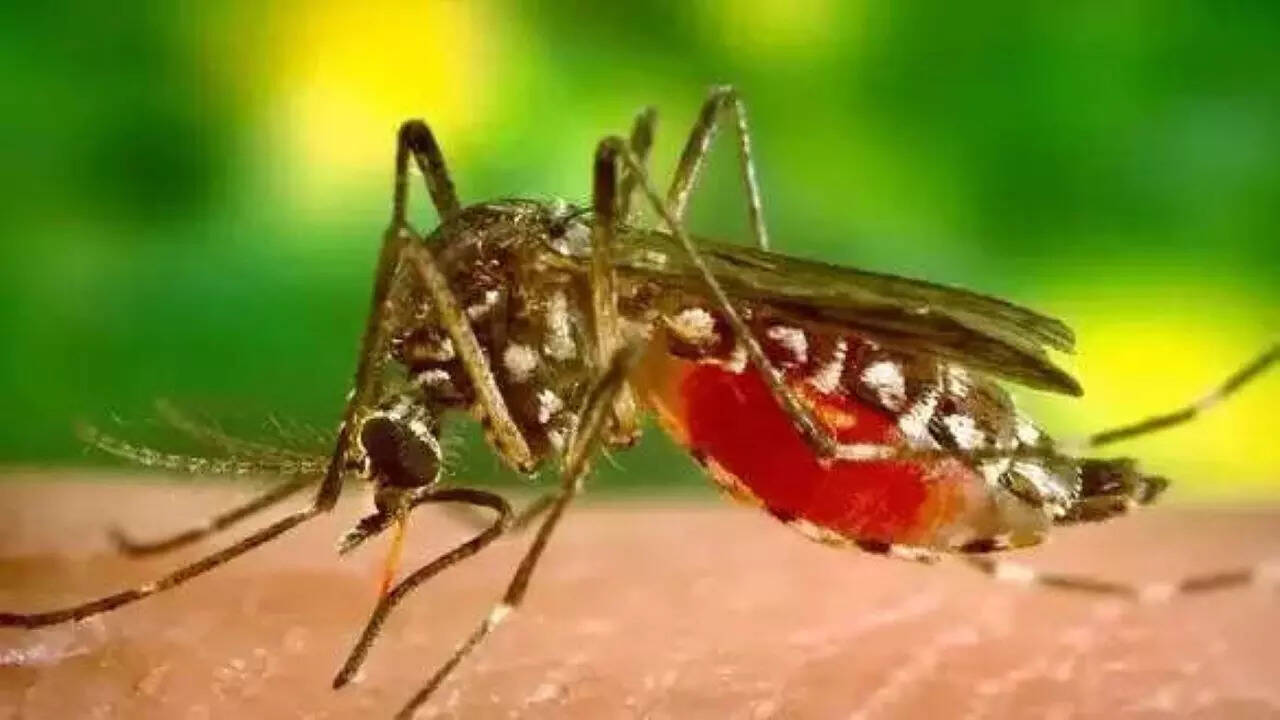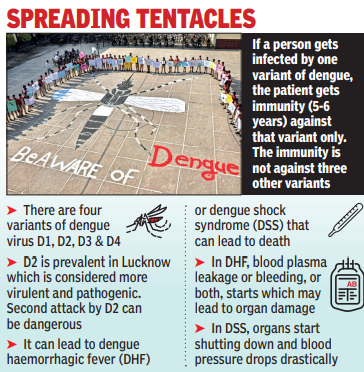- Diagnostics
- 2 min read
Dengue's most harmful D2 variant found in most patients in the Lucknow
D2 causes high-grade fever, vomiting, joint pains, and altered sensorium and may even lead to lethal complications resulting in dengue haemorrhagic fever (DHF) and dengue shock syndrome (DSS): Dr Vinita Mittal
This has been revealed in serotype testing of blood samples of dengue positive patients by the microbiology department of SGPGIMS under the National Vector-borne disease control programme. Head, SGPGI's microbiology department, Prof Ujjala Ghoshal said dengue infection is caused by a virus of the Flaviviridae family. It has four distinct serotypes - D1, D2, D3 and D4. They cause dengue infection.
"Dengue serotype detection by RT-PCR is routinely performed at SGPGIMS. Of these, some samples are tested for serotyping. In 2022, D-2 serotype is the most prevalent in Lucknow, followed by D3 serotype; few cases of mixed infection with D-2 and D-3 serotype were also detected," she added.
Prof Atul Garg, co-incharge virology lab, SGPGIMS added that dengue serotypes in circulation keep on changing yearly; last year D3 serotype was most common followed by D2. Minimum number of D-4 cases have been reported from the city in past few years. "As per the national data, D2 is the most prevalent dengue serotype over the past 50 years in India," he added.
Experts said D2 strain of the dengue virus (serotype 2 or DENV-2) is known to be the most virulent strain and can cause severity in disease. Last year, in October, D2 variant was behind the surge in fever cases and deaths in western UP districts of Firozabad, Agra, Mathura and Aligarh. They also said, D2 is responsible for more admissions. Earlier 20 out of 100 positive patients used to be hospitalised that has reached 30%.Similarly, earlier only 1% patients would need ICU care but this year about 5% patient are requiring ICU care.
Dr Vinita Mittal, faculty at community medicine in RMLIMS, said D2 causes high-grade fever, vomiting, joint pains, and altered sensorium and may even lead to lethal complications resulting in dengue haemorrhagic fever (DHF) and dengue shock syndrome (DSS).

She said it has been established that DHF is caused by a "Cytokine Tsunami" but despite extensive studies for over four decades, its genesis is still not fully understood. "It is considered major cause of DHF including antibody-dependent enhancement (ADE), means immune cells (T cell response) respond uncontrollably." Due to plasma leakage, bleeding or both (DHF), patient might suffer DSS, she added.
However, HOD microbiology department, KGMU, Prof Amita Jain said, "All variants cause same level of sickness and precautions are a must against mosquitoes."






COMMENTS
All Comments
By commenting, you agree to the Prohibited Content Policy
PostBy commenting, you agree to the Prohibited Content Policy
PostFind this Comment Offensive?
Choose your reason below and click on the submit button. This will alert our moderators to take actions